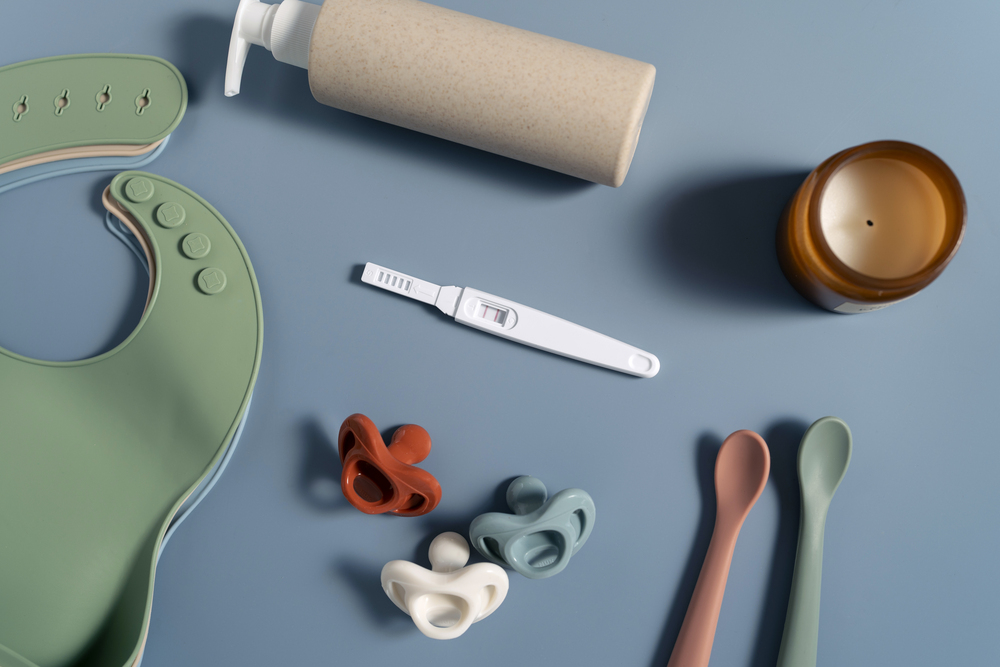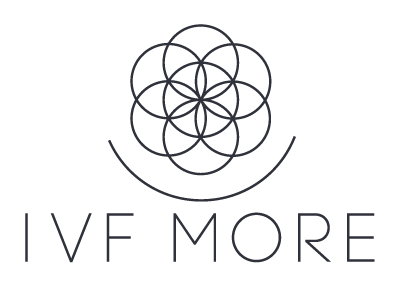Endometrial Readiness vs. Egg Quality: Getting Both for Better Outcomes
November 2025

Introduction
When we think about fertility and IVF success, most conversations focus on one word: eggs. We talk about egg quality, egg quantity, and how age affects both. But there’s another equally important part of the story — the endometrium, or the lining of the uterus, where the embryo must implant and grow.
Even the highest-quality embryo cannot thrive if the uterus is not ready to receive it. That’s why understanding the balance between egg quality and endometrial readiness is key to achieving better reproductive outcomes.
In this article, we’ll explore how both factors influence fertility, what can disrupt their balance, and how scientific innovations — including IVF MORE® — are helping women improve both.
Why Both Matter: A Perfect Synchrony
Conception is a delicate process that requires two biological systems to work together seamlessly:
- A viable embryo, which depends on the health and quality of the egg (and sperm).
- A receptive uterus, which depends on the hormonal, vascular, and immune environment of the endometrium.
Even when fertilization occurs successfully, implantation — the moment when the embryo attaches to the uterine lining — can fail if the endometrium is not receptive. This is known as implantation failure and accounts for up to two-thirds of unsuccessful IVF cycles.
The most successful IVF outcomes happen when both the egg and endometrium reach their optimal state at the same time — a concept often referred to as embryo-endometrial synchrony.
Understanding Egg Quality
Egg quality refers to the egg’s ability to be fertilized, develop into a healthy embryo, and support normal implantation. High-quality eggs contain the correct number of chromosomes and have robust mitochondria — the cell’s energy centers that drive division and early embryo growth.
Main Factors That Influence Egg Quality
- Age: The most well-known factor. After 35, mitochondrial efficiency and chromosomal stability decline.
- Oxidative stress: Caused by inflammation, toxins, or poor diet, which can damage egg DNA.
- Hormonal balance: Disruptions in FSH, LH, estrogen, and progesterone levels can interfere with egg maturation.
- Lifestyle: Sleep, nutrition, stress management, and exercise directly affect cellular health.
- Medical conditions: Endometriosis, PCOS, or autoimmune issues can compromise ovarian function.
While egg quality decreases naturally with time, advances in regenerative medicine and techniques like IVF MORE® can help improve the cellular environment of the eggs, supporting better embryo formation.
Understanding Endometrial Readiness
The endometrium is a dynamic tissue that thickens and matures during each menstrual cycle under the influence of hormones, particularly estrogen and progesterone. For implantation to occur, the lining must be thick enough, well-vascularized, and receptive at the right moment — a period known as the window of implantation (WOI).
Key Elements of Endometrial Readiness
- Thickness: An endometrial thickness of 7–12 mm is often considered optimal for implantation.
- Blood flow: Good uterine blood circulation ensures oxygen and nutrients reach the embryo.
- Hormonal support: Estrogen and progesterone levels must be properly balanced.
- Receptivity markers: Specialized molecules (such as integrins and cytokines) signal when the uterus is ready for implantation.
When these conditions are not met, even the best-quality embryos may fail to implant or result in early miscarriage.
How Egg Quality and Endometrial Readiness Work Together
Think of fertility as a two-part equation:
Healthy embryo + receptive uterus = higher success rate.
- If egg quality is poor, embryos may have chromosomal abnormalities that prevent implantation.
- If the endometrium isn’t ready, even genetically normal embryos can fail to attach
- When both are aligned, the chances of achieving a healthy pregnancy and having a baby in your home increase significantly.
This balance is especially important in women over 35 or those who have experienced repeated implantation failure (RIF).
What Can Disrupt the Balance
The delicate interplay between eggs and endometrium can be influenced by several factors, both biological and external:
- Hormonal imbalances: Affect both ovulation and uterine lining development.
- Chronic inflammation: From conditions like endometriosis or infections can alter receptivity.
- Autoimmune reactions: The immune system may attack embryos or endometrial cells.
- Stress and cortisol: Chronic stress impacts both hormone production and blood flow to reproductive organs.
- Environmental toxins: Chemicals like BPA, phthalates, and pesticides can impair egg health and endometrial function.
Understanding and managing these factors is crucial before and during IVF treatment.
How to Assess Egg Quality and Endometrial Readiness
1. Evaluating Egg Quality
Egg quality isn’t directly measurable before fertilization, but doctors can estimate it through several indicators:
- Age and ovarian reserve tests (AMH, FSH, and antral follicle count).
- Response to ovarian stimulation: The number and maturity of eggs retrieved.
- Embryo development patterns: Observed in the lab after fertilization.
2. Evaluating Endometrial Readiness
The endometrium can be evaluated using non-invasive and advanced diagnostic tools:
- Ultrasound: To measure endometrial thickness and structure.
- Doppler flow studies: To assess blood flow to the uterus.
- Endometrial Receptivity Analysis (ERA): A molecular test that determines the exact timing of the window of implantation.
- Microbiome testing: To detect bacterial imbalances that may affect implantation.
These evaluations help personalize treatment and optimize timing for embryo transfer.
Improving Egg Quality: Science-Backed Strategies
Enhancing egg quality requires a combination of medical, nutritional, and lifestyle approaches.
- Antioxidant support: Nutrients like CoQ10, vitamin D, and omega-3 fatty acids improve mitochondrial health.
- Balanced diet: Focus on fresh vegetables, fruits, lean proteins, and whole grains.
- Regular moderate exercise: Promotes blood circulation and hormonal balance.
- Stress reduction: Mindfulness, therapy, and gentle movement (like yoga) can improve hormonal harmony.
- Avoid toxins: Limit alcohol, caffeine, smoking, and plastic exposure.
In some cases, IVF MORE® may be recommended to directly address cellular and metabolic issues within the egg, improving its capacity to generate viable embryos.
Improving Endometrial Readiness
The goal of endometrial optimization is to create a receptive and healthy uterine environment. Depending on your evaluation, your doctor may suggest one or more of the following strategies:
- Hormonal support therapy: Custom estrogen-progesterone protocols to regulate endometrial growth.
- Addressing infections or inflammation: Treating bacterial or immune-related issues that affect receptivity.
- Improving uterine blood flow: Through medications, acupuncture, or low-impact exercise.
- Nutritional support: Foods rich in iron, vitamin E, and arginine may enhance vascularization.
- Lifestyle balance: Prioritizing rest, emotional well-being, and reducing chronic stress.
When timed correctly, these measures help synchronize the embryo transfer with the uterus’s peak receptivity window.
How IVF MORE® Addresses Both
IVF MORE® (Magnetic Ovulatory Restoration) represents a significant advancement in fertility science. Unlike conventional IVF, it integrates cellular rejuvenation, regenerative medicine, and precision micromanipulation to enhance both egg and embryo potential.
But its benefits go beyond the lab. By improving egg metabolism and promoting healthier embryonic division, IVF MORE® indirectly supports better embryo-endometrial communication — a vital part of implantation success.
How It Works
- Restores mitochondrial energy: Enhances the egg’s natural energy production.
- Improves cytoplasmic health: Supports embryo development post-fertilization.
- Promotes synchrony: When high-quality embryos are transferred into a well-prepared uterus, success rates increase significantly.
While no fertility procedure can guarantee a 100% success rate, IVF MORE® offers a scientifically grounded path to improving both the biological quality of eggs and the receptivity of the uterus — helping more women bring a baby into their home.
Common Questions
1. Can you have a good endometrium but poor egg quality (or vice versa)?
Yes. Many women have a perfectly receptive uterus but struggle with poor egg quality — or the reverse. This is why a comprehensive evaluation of both is essential before IVF.
2. Can endometrial readiness be improved naturally?
In many cases, yes. Lifestyle changes that improve circulation, reduce stress, and balance hormones can make a measurable difference, especially when combined with medical guidance.
3. Does IVF MORE® replace hormonal or endometrial treatments?
No. It complements them. IVF MORE® focuses primarily on improving the egg and embryo quality, which works hand-in-hand with endometrial optimization protocols.
Conclusion
In fertility care, egg quality and endometrial readiness are two sides of the same coin. A high-quality embryo needs a receptive home, and a receptive uterus needs a healthy embryo to nurture. Modern reproductive science — particularly innovations like IVF MORE® — is bridging that gap, offering comprehensive approaches that consider both factors together.
By combining medical precision, lifestyle awareness, and emotional balance, it’s possible to create the ideal conditions for success. Whether you’re just beginning your fertility journey or pursuing another IVF attempt, understanding and aligning these two elements can bring you closer to having your baby in your home.
Curious about how IVF MORE® can help improve both egg quality and endometrial readiness? Contact our specialists today to schedule a consultation and discover how science and personalized care can help you reach your fertility goals.
